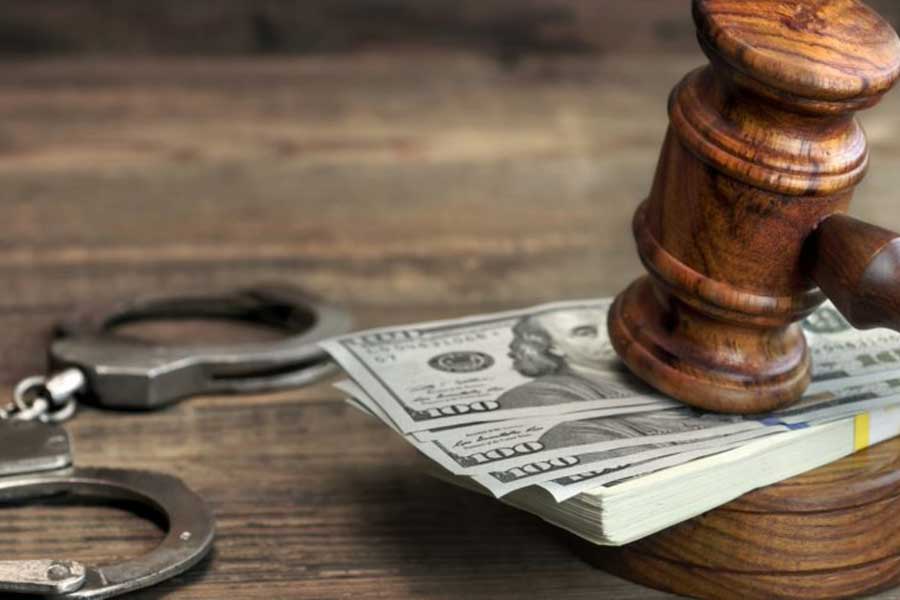The way bail is set, cash bail and exorbitant bail have become part of the presidential primary conversation, thanks largely to Sen. Kamala Harris (D-CA).
Harris’ highlighting of the issue as she campaigns holds particular resonance right now in Philadelphia, as the ACLU has filed a class-action complaint over bail.
Cash and punitive bail that disproportionately impact communities of color and marginal communities like LGBTQ people has become one of Harris’ signature issues. She has written about it in a new book and has pending legislation in the Senate.
The former prosecutor and attorney general of California spoke passionately during a television appearance March 19 about how damaging arbitrary bail requirements can be in delaying and denying justice.
In Philadelphia, court administrators have been accused by the ACLU of unconstitutional actions with regard to how bail is set.
The ACLU revealed March 12 that it had filed a class-action complaint with the Pennsylvania Supreme Court. The complaint pleads with the court to force the city to comply with the court’s own rules on bail.
The ACLU previously sent a warning letter to Philadelphia court administrators, asserting that bail is being set contrary to court guidelines, without regard for a defendant’s ability to pay. The ACLU stated that this is unconstitutional.
“The system of bail in Philadelphia is clearly quite broken,” said Reggie Shuford, executive director of the ACLU of Pennsylvania. Shuford has defended numerous LGBTQ people and received the 2016 Pennsylvania Bar Association David M. Rosenblum GLBT Public Policy Award.
“The rules say there’s a presumption of pretrial release and, before you can give someone cash bail, you have to evaluate their ability to pay,” said Mary Catherine Roper, deputy legal director of the ACLU of Pennsylvania.
The ACLU has monitored more than 2,000 arraignments over the last year and found that these requirements were not being met and that defendants had little or no participation in their own bail hearings. Those who can’t afford to pay bail are more likely to languish in jail, even for minor offenses, Harris said. LGBTQ youth are disproportionately represented in the criminal-justice system.
A 2016 study by the Williams Institute at UCLA Law School found that “LGBT people — and particularly LGBT people of color — face higher rates of incarceration and unfair treatment and abuse in the criminal justice system.”
The study, “Unjust: How the Broken Criminal Justice System Fails LGBT People,” found that “pervasive stigma and discrimination, biased enforcement of laws, and discriminatory policing strategies mean that LGBT people are disproportionately likely to interact with law enforcement and to have their lives criminalized. LGBT people are also treated unfairly once they enter the system.”
According to the report, LGBT defendants also face abuse at greater rates than other defendants.
Finally, the report shed light on the fact that LGBT people face unique and considerable challenges in the struggle to rebuild their lives after experiences with law enforcement — and particularly after time spent in a correctional facility.”
Philadelphia already has a disproportionate number of youth in jail. In February, Philadelphia District Attorney Larry Krasner moved to change that reality, announcing new policies that would change treatment of juveniles in the justice system. These policies will alter some of the harsher penalties and treatment that youthful offenders have been subjected to, particularly those who haven’t committed serious or violent crimes, or who aren’t repeat offenders.
Krasner’s plan includes modifying the most egregious practices, like solitary confinement, which has been used frequently against LGBTQ people of all ages in jails, but particularly LGBTQ youth. Krasner would also end incarcerating youth for status offenses like breaking curfew or skipping school and sentencing them to facilities that are dangerous to youth offenders.
The DA is charging fewer children as adults, and 85 percent of those who have been charged as adults have been “decertified” to juvenile court. A significant portion of these youth are LGBTQ minors of color.
LGBTQ youth have been disproportionately represented in juvenile detention centers and jails. In a 2015 survey of young people at seven juvenile detention sites across the country, an estimated 20 percent identified as LGBT or gender nonconforming, including 40 percent of girls and 14 percent of boys. This is triple the share of all youth who identify as LGBT or gender nonconforming, at an estimated 5-7 percent. But Krasner’s proposals would be stymied by continuing these bail standards.
The ACLU notes that bail is routinely placed on kids who are charged as adults and have no ability to pay, as well as on homeless people, many of whom are LGBTQ.
The ACLU lawsuit was filed on behalf of currently jailed defendants along with the Youth Art and Self-Empowerment Project (YASP) that works with youth charged as adults.
A study of Philadelphia courts by legal scholar Megan Stevenson found that bail resulted in the disproportionate detention of poor and African-American defendants. She also found those incarcerated pretrial were 13 percent more likely to be convicted than those who were released, and served sentences that were, on average, 42 percent longer.
The National Transgender Discrimination Survey revealed that 16 percent of transgender and gender-nonconforming respondents had been held in jail or prison. Transgender women were held at a rate of 21 percent and transgender men at 10 percent. Comparatively, about 5 percent of all American adults will spend time in jail or prison during their lives.
According to the National Inmate Survey, 7.9 percent of individuals in state and federal prisons identified as lesbian, gay or bisexual, as did 7.1 percent of individuals in city and county jails. This is double the number of Americans who identify as LGBT.
Bail is an important part of the judicial process. If some groups are more likely to be denied bail by making the amounts inaccessible, then the system is failing those people and too often those people are LGBTQ.
